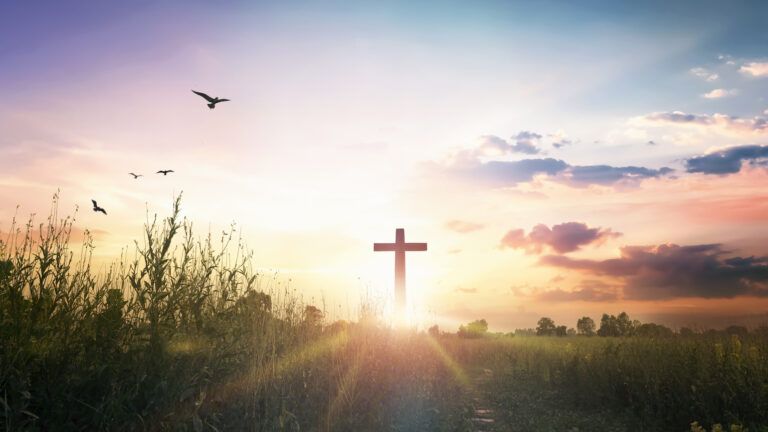Search for me online and you’ll find a website called MadeInA FreeWorld.com. That’s the company I run. We make software that helps businesses protect against the use of slaves in their supply chains.
That’s right, slaves. One of the world’s most tragic realities is the fact that slavery is thriving—and probably casting its shadow over your house right now.
The United States Department of Labor has identified at least 139 products from 75 countries that were produced using forced or child labor, including clothes, coffee and carpets. It’s estimated there are more than 20 million human trafficking victims in the world, a quarter of them children forced to work in factories and brothels.
When I first learned about this injustice, I was so shocked I could barely speak. That shock has since matured into action. That’s why the company I started, Made in a Free World, created software called FRDM, which monitors more than 50,000 global goods and suppliers so that companies know whether the materials and services they’re buying are produced humanely.
I’m passionate about my work. I’m also surprised by it. My title is CEO, but I never went to business school. My company makes software, but I’m no software engineer. I commute every day to an office in downtown San Francisco, but for most of my life I never had a real job. I used to play in a rock band. How did I get here?
The answer to that question starts about 40 years ago, when I was growing up in the suburbs of San Francisco. At church, at school, hanging out with family and friends, I sensed there was something more the world wanted from me. Something I needed to do. I didn’t know what it was. But I had to respond.
Back then, the Bay Area wasn’t yet a global epicenter of technology. I used to pick walnuts in a grove where Tesla now produces cars in a state-of-the-art factory. I was one of five kids. My mom was a teacher. My dad sold cars. We lived in a tract house. Our church was small, close-knit.
It was a typical childhood, but I didn’t feel typical. By the time I was in junior high school, I felt a strong urge to explore the world, to question things that I was supposed to accept as true.
You can’t do much exploring in the suburbs without a driver’s license. But there was music.
I started listening to a radio station called KQAK—The Quake, broadcasting out of San Francisco. The Quake played music heard nowhere else in the Bay Area: punk, reggae, local bands started by kids no different from me. A lot of the music, especially by bands such as the Irish rockers U2, was filled with lyrics about fighting injustice and rejecting the materialism of modern life.
My parents were probably appalled by the decibels emanating from my bedroom. I heard something else. Those lyrics about racial injustice and political oppression sounded like the voice I’d been hearing deep inside. The voice urging me to search for more. At last I knew what I wanted to do.
Some friends and I formed a band. Frankly, we were horrible. We practiced and got better. Somehow we convinced our parents to let us play concerts at San Francisco music clubs. We called ourselves The Society. We thought we were cool. We were not.
It was the kind of thing a lot of teenagers do. But I kept at it, even in college. The band went through name and personnel changes until we started getting airplay on the radio. Then we landed a record deal, went on tour. Soon I was flying back and forth to Los Angeles and rehearsing on a sound stage next to U2.
We released an album on our record label, but it didn’t take off—a typical music industry outcome. But something happened while I was recording. I was in a music studio in Los Angeles, taking a break between sessions. I glanced down at a newspaper on a table.
“Girls for Sale,” a headline read. Could that be for real? I read the story, which was about teenagers sold into prostitution in Cambodia. The story described the girls as “twenty-firstcentury versions of slaves.”
I read the article twice, three times. Slaves? One of the girls described in it was rented out for $2.50 per night. She couldn’t escape or call the police because the brothel owner bribed officers— and some were customers.
Disbelief gave way to helpless rage. How could this happen? I thought slavery was a thing of the past. I felt a burning need to do something. But what?
Not long after, in 2005, a nonprofit organization invited my band on a tour bringing music to struggling parts of Eastern Europe. The tour wouldn’t do anything about slavery. But it would bring some happiness to people who needed it. So we went. I was shocked by the poverty I saw in places like Russia.
I was even more shocked when some of the young women who translated for us told me they planned to move to the U.S., where someone had promised them work in “modeling and domestic work.” I realized with horror that these young women were about to be trafficked. I tried to warn them. But they insisted on going. “There are no opportunities here,” they said.
After the tour, all I could talk about was human trafficking. My friends were bewildered by my obsession. Few people understood what a huge global problem it was. I needed to do more. I called organizations working on the issue, including International Justice Mission, a global Christian antitrafficking organization.
“I want to help,” I said.
“Great,” they said. “Can you raise money? That’s what we need.”
I organized a benefit concert and donated the proceeds. But that was just one concert. How could I make more people feel the urgency I felt?
My band wasn’t famous enough. But other people in the music industry were. An idea began to form. What if I made a movie filming artists singing about the issue, interspersing that footage with facts about trafficking?
I pitched the idea to artists and producers. Almost everyone I asked agreed to participate. I interviewed politicians, academics studying the issue, journalists writing about it—including the one whose “Girls for Sale” story first inspired me.
I didn’t know how to film a movie, but I learned from friends in the film industry. With their help, I assembled hours of footage, then edited it into a one-and-a-half-hour documentary. I called it Call and Response, hearkening back to the singing style that developed during centuries of slavery in early America.
I wanted the film to feel like a concert in a movie theater. I gathered a small team, and we distributed the film to theaters across the U.S. It immediately sold out. More theaters asked to show it. Film festivals included it in their schedules. It was screened at colleges, and clips were even shown at the White House. Soon I was appearing on national TV talk shows.
People who saw the movie wanted to do something. We made a website that enabled them to write to politicians and corporations, demanding action. By then, I was married and a new father. My wife, Danelle, and I were living hand to mouth while I focused on the movie. My music career was far behind me, and I wasn’t sure what to do next.
Someone called from the U.S. State Department. They had seen the movie and wanted me to build a website that would show the extent of slave labor in the world. I jumped at the opportunity and, with another small team, created a website called Slavery Footprint, which enables people to calculate how much slave labor was used to produce the goods they own. For example, is the tantalum used to make electrical components in your mobile phone mined by child laborers?
When the website went live, response was so tremendous that it crashed our server.
Corporations began contacting me. Could I do the same thing for them by helping measure labor abuses in their supply chains? Modern slavery was in the news, and customers were demanding transparency. And so I began work on the software that now forms the backbone of Made in a Free World.
What an improbable journey. I started out playing rock songs with my friends in a suburban garage. Now I’m the CEO of a tech company. Like I said before, how did it happen?
The answer is simple. I believed the voice inside me that said the world needed something from me.
So many times I could have ignored that voice or said, “But I don’t know how to do that!” I didn’t know how to play guitar or sing when I started a band. I didn’t know how to build a music career. Or make a movie. Or design a website. Or run a business.
None of that mattered. What mattered was hearing God’s still, small voice, which spoke to my heart so strongly and consistently that I was compelled to respond.
My calling is justice for the poor. What’s your calling? Everyone has one. That voice calls all of us to make our world, our communities, our families stronger and kinder and more full of life.
Listen to that call. You never know where it might take you.
For more inspiring stories, subscribe to Guideposts magazine.





